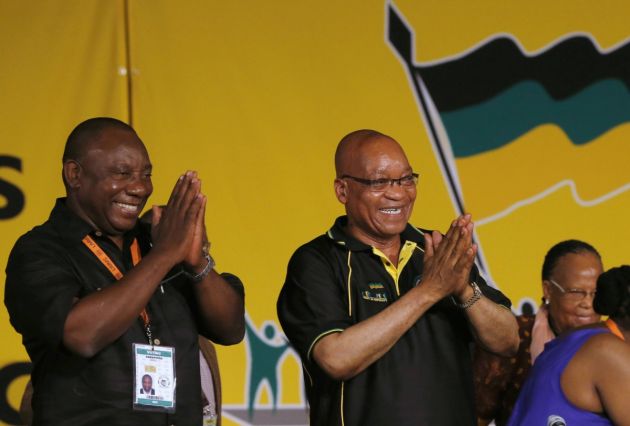S. African leader urges Christians: Be 'moral conscience' on rape

The man who could become South Africa's next president, Cyril Ramaphosa, has called on Christians to be the country's moral conscience when it comes to crimes such as rape which has been become a "pandemic of sexual violence" according to the U.N. human rights chief.
"We also need to be the moral conscience of our country when it comes to respect for women and acting against rapists. We as Christians need to become the moral conscience of our country," Ramaphosa was quoted saying by the City Press newspaper on March 3.
Ramaphosa was speaking in Rustenburg, north or Pretoria at the Pentecostal Holiness Church's centennial celebrations and he urged the Church to take on a stronger leadership role in building a better South Arica.
In December Ramaphosa, who was powerful trade union leader during the struggle against apartheid, then became a multi-millionaire businessman, was elected deputy president of South Africa's ruling African National Congress.
The leader of the party is South African President Jacob Zuma. Ramaphosa, a key negotiator in setting up the new South Africa is is being touted as a potential successor to Zuma.
"This country cares for the Lord. It recognizes the importance of the Lord and the hegemony of the Lord," said the ruling party leader before 500 congregants.
The newpaper reported that Ramaphosa began singing a popular Christian hymn which has some of the following lyrics: "If you believe and I believe / And we together pray / The Holy Spirit must come down / And Africa will be saved."
He added, "This country requires leadership. It requires its consciousness to be raised.
"There is no better agent than Christians and the church to raise the morals, the moral consciousness of our nation," he said.
"It falls on us as Christians. We must say this is a sin. This is a crime. Rape is a sin and it is a crime. We are the ones as Christians who must stand up and say, corruption, we will never accept it, because it is a sin. It is a crime."
The United Nations High Commissioner for Human Rights, Navi Pillay, on Feb. 8 expressed her shock and deep sadness at the atrocious rape, mutilation and murder of Anene Booysen, a 17-year-old South African woman.
She urged a more comprehensive approach to tackling the "pandemic of sexual violence" affecting tens of thousands of women every year in South Africa.
"There is a need for very strong signals to be sent to all rapists that sexual violence is absolutely unacceptable and that they will have to face the consequences of their terrible acts. The entrenched culture of sexual violence which prevails in South Africa must end," said Pillay, a former South African High Court judge.
The UN human rights office said South Africa has the highest rates of rape reported to the police anywhere in the world. In 2012, the number of rapes documented by the police rose to over 64,000 – or 175 per day. It said these figures are believed to considerably underestimate the true number of rapes, as many cases go unreported.
In his speech Ramaphosa also emphasised the closeness between the Church and the founding in 1912 of the ANC, which has ruled South Africa since 1994.
He noted that the Church is the ANC's "DNA", adding that the reason the party still has a chaplain-general in its office is to ensure that "the ANC stays close to God's light" and does everything "in accordance with what God prescribes."
South African churches played a pivotal role in the struggle against apartheid, but in recent years a number of church leaders have criticised the government for shunning its principles, becoming corrupt and allowing crime to thrive.
Church leaders who were prominent in the struggle against apartheid, but who have recently lambasted Zuma and the ANC for the way they rule include Nobel Peace Prize Laureate and former Anglican archbishop of Cape Town Desmond Tutu and Roman Catholic Cardinal Wilfrid Napier.